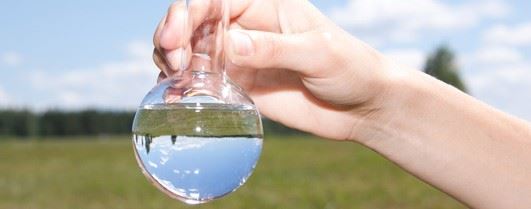Water Quality Monitoring Strategic Plan

Summary
The City faces new water quality challenges from rapid urban growth and is exploring methods to bolster its current water quality monitoring program. Current monitoring efforts by the City and County within the City of Sammamish are limited in scale and do not provide City staff with sufficiently robust or quantitative means to identify pollution sources or develop projects that improve water quality. This project will develop a written, implementable water quality monitoring plan for the City. The plan will address different types of monitoring in multiple water bodies, such as wetlands, streams, and lakes that would potentially answer a variety of study questions for future City projects. The proposed monitoring will complement existing monitoring measures implemented by King County and others within the city.
Public Outreach
The project team will host a project booth at the City’s Earth Day event at Beaver Lake Lodge on April 21, 2018, from 10am to 1pm. The Earth Day event is open to all City residents. City staff will be present with some information posters to share more information about the program and solicit feedback and opinions. Topics will include:
- The overall purpose of monitoring water quality,
- Different types of water bodies that are and/or could be monitored
- What monitoring is used for
- Current and proposed water quality monitoring in the City
- Soliciting citizens’ input on what the City’s focus should be.
Schedule
December 2017 – Project kick-off with King County
February 2018 – Draft report written
March 2018 – Editing report draft
April 17, 2018 – Public outreach at Earth Day
April 2018 – Final report draft
May 08, 2018 – City Council Study Session Discussion: Introduction to the Water Quality Monitoring Strategic Plan and Implementation (60-minutes)
June 19, 2018 - City Council Resolution to Adopt
Current Water Quality Monitoring Efforts
The City of Sammamish and King County currently monitor the water quality of some surface water bodies in the City. For a comprehensive list, please see our current water quality monitoring page.
Proposed Additional Water Quality Monitoring
- The plan will evaluate the following types of data to be collected:
- Weather, including rain fall;
- Flow rates;
- Water levels;
- Turbidity;
- Temperature;
- Nutrients, including phosphorus and nitrogen;
- Heavy metals;
- Stream benthos and in-stream habitat; and
- Riparian habitat.
- The plan will evaluate the following methods of data collection:
- Continuous hydrology and water quality monitoring with deployed sensors;
- Discrete water quality monitoring with hand-held field equipment for sample collection delivered to a laboratory for analysis; and
- Discrete water quality monitoring with hand-held field equipment for sample collection recorded at time of sampling.
- The plan will evaluate several types of monitoring objectives which include:
- Status and trends monitoring to assess current conditions and long term changes over time at select locations;
- Effectiveness monitoring to assess how well projects and programs are functioning with respect to aquatic protection;
- Characterization monitoring to assess environmental status across a broad swath of landscape to allow for planning for future efforts; and
- Pollution source identification monitoring to help find sources of pollution to water bodies to allow for pollution control.
- The written plan will describe potential recommended City actions for water quality monitoring, including:
- Different water-quality questions the City may seek to answer with monitoring;
- Monitoring approaches for answering potential questions;
- Level of effort (i.e. labor hours), equipment, software, and cost considerations for implementing monitoring actions.
